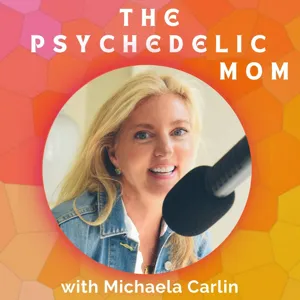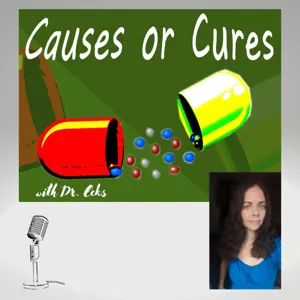Borderline Personality Disorder: The Jukebox of Self Doubt

Diagnosis of personality disorders in youth is relatively new. Before the release of the Diagnostic and Statistical Manual, version 5 (DSM-V), nobody under the age of 18 could receive a diagnosis of a personality disorder, mainly due to the transitional nature of personality in youth, and the degree of stigmatization attached to such a diagnosis. Researchers have since stressed the importance of early detection and treatment for the outcomes of these disorders. In fact, almost all personality disorders diagnosed in adulthood can also be diagnosed in children under the age of 18 who have presented with symptoms for at least one year. The one exception to this rule is related to the diagnosis of antisocial personality disorder in adulthood, which must be preceded by a history of childhood conduct disorder.
This episode’s guest, Sophie, mentions different ways her symptoms of borderline personality disorder (or BPD) influence her relationships and ability to trust. We hear that having BPD has instilled in her a tendency towards hyper-attunement to others. This means that Sophie connects to and takes on the emotions of others, in such a way that impacts her behavior and relationships – sometimes in good ways, and sometimes in not-so-good ways. Sophie shares with us that she often identifies and latches on to a “favorite person”, which can sometimes introduce problematic coping mechanisms when things go awry. We also learn about Sophie’s difficult struggles with trust and distrust towards other people and situations.
Often common in those afflicted with BPD, researchers have been prompted to explore the link between impairments in trust processes and the disorder. One study suggests that developmental factors, like experiences of emotional neglect or a lack of trust in parents during childhood, may influence certain behaviors in interpersonal exchanges and ultimately be a risk factor for trust issues in adults with BPD. With the involvement of trust processes being so salient in those with BPD, special attention needs to be attributed to ensuring a safe and trustworthy therapeutic alliance can be established between the therapist and person that is seeking treatment for BPD. Folks with BPD have expressed that therapy simply doesn’t work for them when they are made to feel unsafe. Because of this, care providers are encouraged to consider difficulties with trust in individual treatment plans and emphasize interpersonal trust between themselves and the person seeking treatment for BPD with the goal of developing a favorable therapeutic alliance.
Fast Facts
- Common traits of BPD include having extreme fears of being rejected or abandoned, feeling easily rejected by others, an excessive need for reassurance from others, and more. Studies suggest that 1 to 3% of youth under 18 may have traits of borderline personality disorder.
- BPD is usually diagnosed in teens and young adults, though it may also be diagnosed later in life.
- Most youth who receive appropriate supports and services will benefit and show improvement. Youth who don’t get treatment are at higher risk for aggression, criminal behaviour, ongoing mental health problems, suicide, homelessness and problems in their relationships.
Learn More about This Episode’s Cool Researchers
As mentioned in the episode, borderline personality disorder is a much-stigmatized condition. For example, one study found that the word “difficult” can routinely be used by clinicians to label a person with BPD. Breaking through these labels and stigmas, while recognizing the need to establish safety and trust through the therapeutic alliance, many clinicians are providing compassionate care towards those with a BPD diagnosis; one such person is this episode’s expert guest, Dr. Brandon Unruh.
Dr. Unruh is disrupting the status-quo of care for BPD by examining and targeting how the next generation of clinicians are being taught about the disorder. In terms of treatment, Dr. Unruh and his colleagues focus on specialized evidence-based treatments for BPD, like dialectical behavioural therapy (DBT), mentalization-based treatment (MBT), and transference-focused psychotherapy (TFP). Dr. Unruh is particularly interested in MBT which is based on the theory of failed mentalization for BPD and refers to impairments with identifying mental states, like attitudes or feelings, in oneself or in others along with difficulties in recognizing how these mental states are influenced by each other. To improve the process of mentalization, MBT emphasizes mental states and interpersonal interactions by encouraging individuals with BPD to focus on how their own mental states affect their own behavior, and the behavior of others. Much of Dr. Unruh’s research on BPD treatment focuses on this method, including an interesting case study on the use of MBT in treating a physician struggling with BPD.
Support
If you’re struggling with your mental health, you’re not alone.
If you are in immediate danger of harming yourself or others, call 9-1-1, or head to your nearest emergency room. You can also call or text 9-8-8 to reach the Suicide Crisis Helpline. Support is available 24 hours a day, 7 days a week.
Young people can chat anytime with Kids Help Phone by calling 1-800-668-6868. Services are available in English and French.
Wellness Together Canada provides one-on-one counselling, self-guided courses and programs, and peer support and coaching. Youth can contact this service by calling 1-888-668-6810 or texting WELLNESS to 686868. Adults can contact this service by calling 1-866-585-0445 or texting WELLNESS to 741741. You can also find credible articles and information on their website.
The Canadian Mental Health Association can help you find resources, programs, or support for yourself or others. Find a CMHA branch in your area here.
The Centre for Addiction and Mental Health provides Mental Health 101 tutorials and online courses on their website.
Though not nation-wide, the Borderline Personality Disorder Society of British Columbia provides support and resources to those struggling with BPD.











